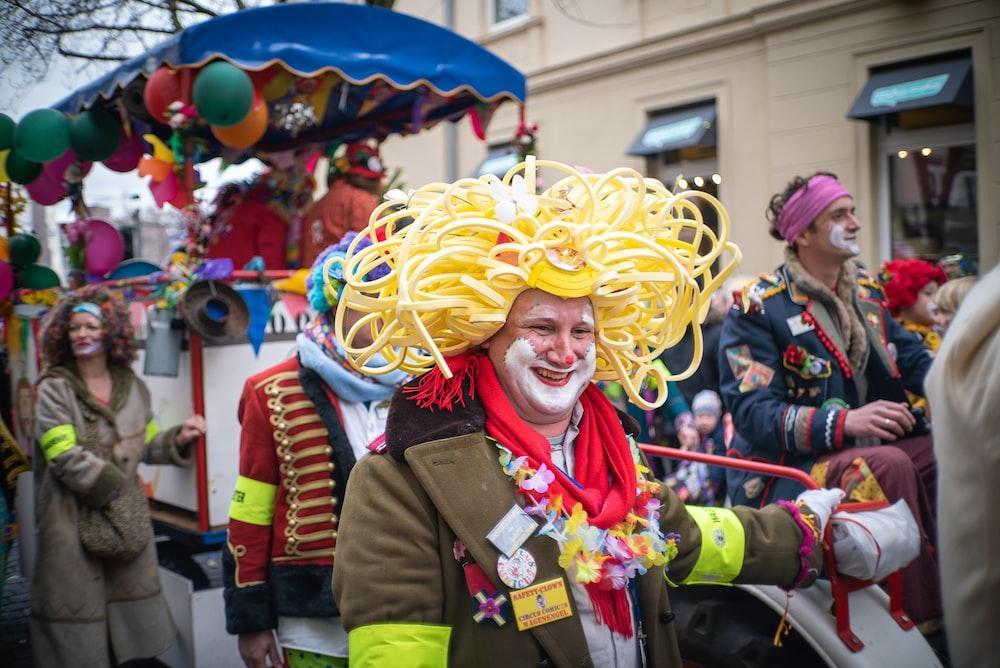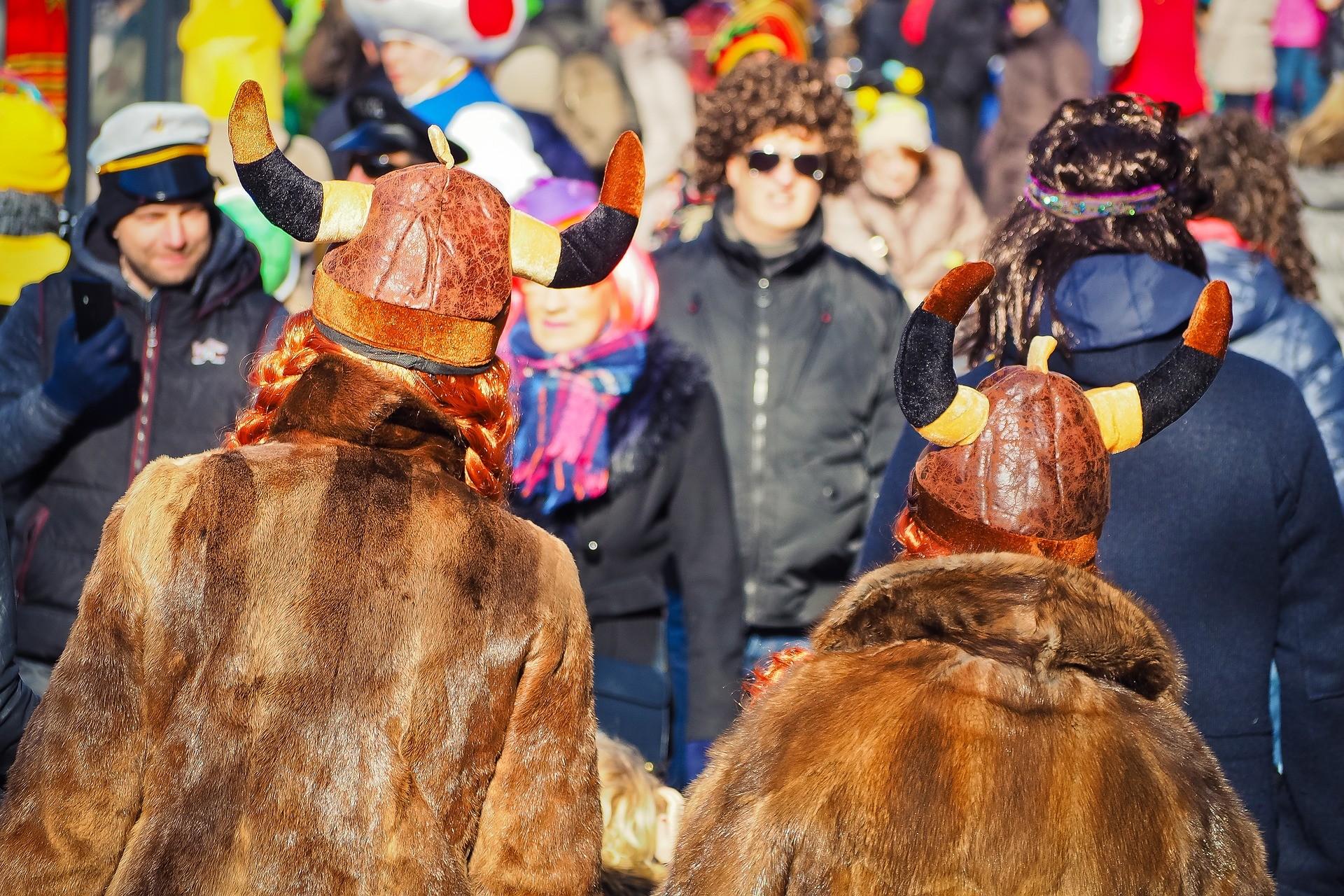Something I’m sure every German-language learner who comes to Germany wants to do is get involved in the local culture. Not only is it a great way to push language learning opportunities onto oneself, to get you out of your comfort zone where friends and family are probably talking English to you most of the time, but you can learn a lot about the context of the language too.
Rosenmontag in my local western German town seemed like a great opportunity to do just that. This the day of Karneval where floats prepared for months by voluntary enthusiasts drive around the streets and pelt the assembled crowds with sweets. And people dress up in costumes.
It sounded fun. I’d just finished the English translation of Daniel Kehlman’s new novel, “Tyll”, so I decided to purchase a jester-style suit and be Till Eulenspiegel, the semi-mythic jester from the middle ages, from when ‘Germany’ was a Roman Empire. And I could do some juggling too.
The first thing to learn was ‘Helau’, which is the greeting in my area for Karneval, and also, I later discovered, a way of attracting the attention of the sweets-throwers. The more loud and impassioned and frequent you bellow the word, the more likely that the sweets-per-square metre ratio around you will increase. The word could be related to the more general ‘Hallo’ or ‘Hellblau’ (light blue) or even ‘Halleluja’ … experts are unsure. In other places there’s ‘Allaaf’, ‘Narri-Narro’, ‘Alleh-Hopp’, ‘Hasi-Pelau’ and even ‘Radi-Radi’ or ‘Wau-Wau’. And while some of the origins are well-known, and tied into features of the area, all of them express a sense of both foolery and belonging.

So my choice to come as a juggling fool in search of a greater sense of belonging had been perfect.
The day came and it was raining and cold. Or, for an Australian: freezing. I packed three layers under the costume and braved it.
I took up a position in front of a medieval church and started juggling my three Euro-shop tennis balls. Immediately, I was surrounded by German-speaking children, impatient for the real attraction, I became a voluntary support act.
Naturally enough they wanted to get involved, and I’m under some performance pressure here, so I revert to English for instructions. I get some incomprehensive looks at first, but physical gestures help, of course. And they teach English pretty early in Germany, so after a few short performances I’m asked in English by one of the more precocious young girls, ‘Where are you from?’
‘I’m from Australia,’ I say, before switching quickly to saying, ‘Ich komme aus Australien.’
‘You speak English?’ the girl asks, as if she’s not quite sure.
‘Genau,’ I respond. This is an important word, and can get you out of a lot of trouble, if you’re stuck.
Eventually, I explain that Till needs to ‘eine Pause nehmen’ and the Karneval procession starts anyway, but coming face-to-face with these children had been a strong learning experience.
They are both more demanding and more forgiving, and very straight-forward. They also seem more patient in a strange way. Once you are considered to be belonging to the events around them, then they are also quite forgiving, since they are maybe closer to understanding the sense of being a newcomer.
Soon, the floats are dragged past us by huge farming tractors and semi-trailers. The sweets are raining down upon us, but also coloured boiled eggs are handed out; knick-knacks, like a boxed compass; popcorn; bags of potatoes … and even cold beers. There are marching bands and dance groups and loud techno music mixes with this very pop ‘Schlagermusik’ played at a very high volume. Helau! Helau! Helaaaaaau!
In the aftermath, the streets are in a terrible mess, by German standards at least. But cleanups are already underway, and all the restaurants and bars are packed to capacity. It’s a struggle to find a seat, but eventually, we find something at an out-of-the-way Italian place. And Tyll sits down to some well-earned pizza and Merlot. And a greater sense of belonging.
By the way, have you heard about our Everyday German Online Course? no? well, you should definitely check out the free preview.
This post was written by Jeremy Davies
01.02.2021

